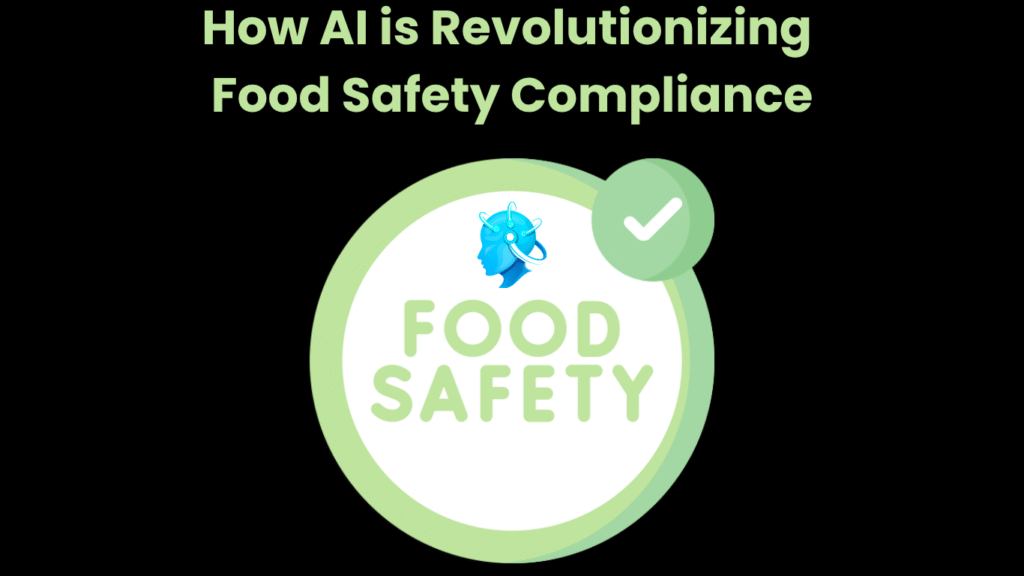Food safety is at the core of consumer trust, brand reputation, and regulatory responsibility. With complex supply chains and ever-tightening regulations, companies face increasing challenges in staying compliant while ensuring that every product reaching consumers is safe. Traditional compliance methods such as paper checklists, spreadsheets, and manual inspections can no longer keep pace with today’s demands.
Artificial Intelligence (AI) is transforming the way food businesses approach compliance. By embedding intelligence into food safety software, companies can automate monitoring, predict risks before they become violations, and ensure continuous compliance with global standards like FSMA compliance and HACCP protocols.
The Growing Need for Smarter Food Safety Solutions
The modern food supply chain is global and interconnected. Ingredients may pass through multiple countries before reaching a production facility, increasing the risk of contamination, mislabeling, or storage mishandling. Regulators have responded with stricter frameworks:
- FSMA (Food Safety Modernization Act) in the U.S.
- HACCP-based requirements for food processors globally.
- Region-specific compliance laws around allergens, traceability, and recalls.
For businesses, the challenge is twofold: keeping up with evolving laws while maintaining operational efficiency. This is where AI-driven systems shine. By turning compliance from a reactive process into a proactive strategy, AI bridges the gap between regulatory expectations and real-world operations.
How AI Enhances Food Safety Compliance
1. Predictive Risk Detection
AI models trained on historical data, sensor inputs, and supply chain patterns can predict potential risks before they escalate. For example, predictive algorithms can flag temperature deviations in refrigerated storage or identify suppliers with recurring non-compliance issues. This proactive detection significantly reduces the likelihood of foodborne illness outbreaks.
2. Automating HACCP Compliance
Implementing HACCP systems has long been a regulatory requirement, but maintaining them is resource-intensive. AI-enabled HACCP software can automate hazard analysis, continuously monitor critical control points (CCPs), and log results without human intervention. This reduces human error, streamlines inspections, and provides auditable records ready for regulators at any time.
3. Real-Time Monitoring with IoT and AI
By pairing AI with IoT devices, companies can track conditions such as temperature, humidity, and handling across the supply chain. Machine learning algorithms analyze this data in real time to ensure immediate corrective actions if thresholds are breached. For instance, a sensor detecting unsafe storage conditions can trigger automated alerts, preventing non-compliance and potential recalls.
4. Enhancing FSMA Compliance
The Food Safety Modernization Act emphasizes prevention, not reaction. AI aligns perfectly with this principle by ensuring companies can foresee compliance gaps. Automated document generation, continuous recordkeeping, and advanced reporting tools powered by AI help companies demonstrate FSMA compliance during audits without the stress of last-minute data collection.
5. Streamlined Compliance Management
Regulatory demands vary by market, and global food producers often juggle multiple overlapping frameworks. AI-driven compliance management systems standardize processes across facilities, centralize records, and align practices with diverse regional laws. This not only reduces duplication of effort but also creates a culture of consistent, scalable compliance across the organization.
Benefits of AI-Driven Food Safety Software
Reduced Human Error
Manual processes are prone to oversight. AI ensures accuracy by automatically validating entries, flagging missing data, and providing structured workflows.
Faster Audits
With automated recordkeeping, food companies can produce compliance documentation instantly, cutting audit preparation time from weeks to hours.
Cost Savings
Predictive analytics minimize waste, while automated monitoring reduces the need for excessive manual inspections. The result is optimized operations with reduced compliance costs.
Greater Transparency and Trust
Consumers increasingly demand transparency in sourcing and safety. AI-enabled food safety software makes it easier to share verifiable, real-time data with both regulators and customers.
Case Applications of AI in Food Safety
- Smart Labeling: AI systems generate labels with allergen and nutritional details while cross-checking supplier inputs against regulations.
- Foreign Object Detection: Computer vision identifies contaminants like plastic or metal fragments in processing lines faster than human inspectors.
- Supply Chain Visibility: AI integrates supplier records, shipment conditions, and production data into a single dashboard, reducing blind spots.
- Recall Management: In case of a contamination event, AI systems pinpoint affected batches within minutes, allowing targeted recalls rather than broad, costly product withdrawals.
Challenges to Consider
While AI offers transformative potential, businesses must address several challenges to maximize adoption:
- Data Integration: Legacy systems often hold siloed records that need integration before AI can provide value.
- Workforce Training: Employees need guidance on how to interpret AI insights and align them with existing safety procedures.
- Initial Investment: Implementing AI-based solutions requires upfront costs, but the long-term ROI in compliance efficiency and brand protection is substantial.
The Future of Food Safety Compliance
As food systems continue to globalize, the complexity of compliance will only increase. Emerging innovations will further reshape the landscape:
- AI-powered predictive recalls to identify risks before products even leave the facility.
- Blockchain integration for immutable traceability across the supply chain.
- Advanced machine vision for detecting pathogens and unsafe handling practices in real time.
The companies that embrace these technologies will not only meet regulatory standards but will also lead the way in consumer trust and global food safety leadership.
Read More: How Local Brands Build Recognition Without Big Budgets
Conclusion: Why AI Matters Now
Food safety is not optional; it is a foundational pillar of every food business. With regulations such as FSMA and HACCP setting high standards, the traditional manual approach to compliance is no longer sustainable. AI offers a path forward with smarter, faster, and more reliable compliance management that safeguards both consumers and brands.
This is where technology partners make all the difference. Folio3 FoodTech provides advanced food safety software, including HACCP software and compliance management tools, designed to help food companies meet FSMA compliance requirements and beyond. By leveraging AI, Folio3 FoodTech ensures that food businesses not only stay compliant but thrive in an increasingly demanding industry.




